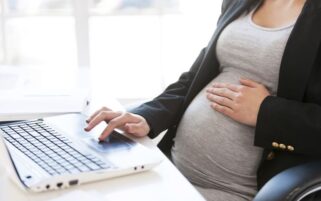New guidance stating NHS staff will not need to self-isolate under certain circumstances has failed to consider the concerns of extremely vulnerable staff, the Institute of General Practice Management (IGPM) has said.
The Government’s guidance, announced and enforced from today (19 July), outlines that double vaccinated NHS and social care staff can attend work rather than self-isolate if they have a negative PCR test and take daily negative lateral flow tests for a week.
The new rule comes with a caveat that these staff members should not work with clinically extremely vulnerable patients.
However, the IPGM flagged that this does not take into account that some staff members may also be vulnerable to Covid-19.
An IGPM spokesperson told Management in Practice: ‘Many of us employ clinically vulnerable people, and whilst the government has said that from today working from home is no longer necessary and other restrictions are being removed, we have many staff who are understandably concerned about their safety.
‘[The Government’s] release states that staff members should not work with clinically extremely vulnerable patients or residents, but does not reference colleagues.’
The spokesperson also said that the IPGM was disappointed the key communications affecting service provision were not first communicated to NHS organisations, adding: ‘Again it feels as though general practice has been left out of the conversation on this issue, with the various factors that we would be only too aware of not being considered.’
The Department for Health and Social Care (DHSC) has been contacted for comment.
‘Divided’ response to guidance
The response to the new guidance has been both welcomed as a ‘pragmatic solution’ and criticised for exposing patients to greater risk.
The NHS Confederation flagged that health leaders are ‘divided’ on whether vaccinated staff should be allowed to swap self-isolation for testing.
Danny Mortimer, deputy chief executive of the NHS Confederation, said: ‘On the one hand, they are worried about their capacity to support patients safely and quickly, particularly given that many staff will already be away for parts of summer as they take overdue annual leave that is owed to them but on the other hand, the last thing they would want to do is expose their patients and colleagues to an increased risk of catching the virus, so the need for local review and discretion here is important.’
Meanwhile, Saffron Cordery, deputy chief executive of NHS Providers, welcomes the ‘pragmatic response to the increasing number of NHS staff having to isolate’.
She said reports that staff have been needing to isolate have been ‘significantly disrupting’ attempts to recover care backlogs, and that it expects the changes outlined to alleviate some of this pressure.
‘This is even more important ahead of further restrictions being lifted today and the expectation that community infections, hospital admissions and sadly, the number of deaths will rise,’ she added.
The announcement comes after an uncertain week regarding the use of face masks and social distancing in general practice beyond 19 July, with NHS England confirming only on Thursday (15 July) that these measures would remain mandatory.
Meanwhile, a survey has shown a number of trusts have declared ‘black alerts’, meaning they are unable to safely deliver services to patients, which in turn is ‘overwhelming primary care in some parts of the country’.



